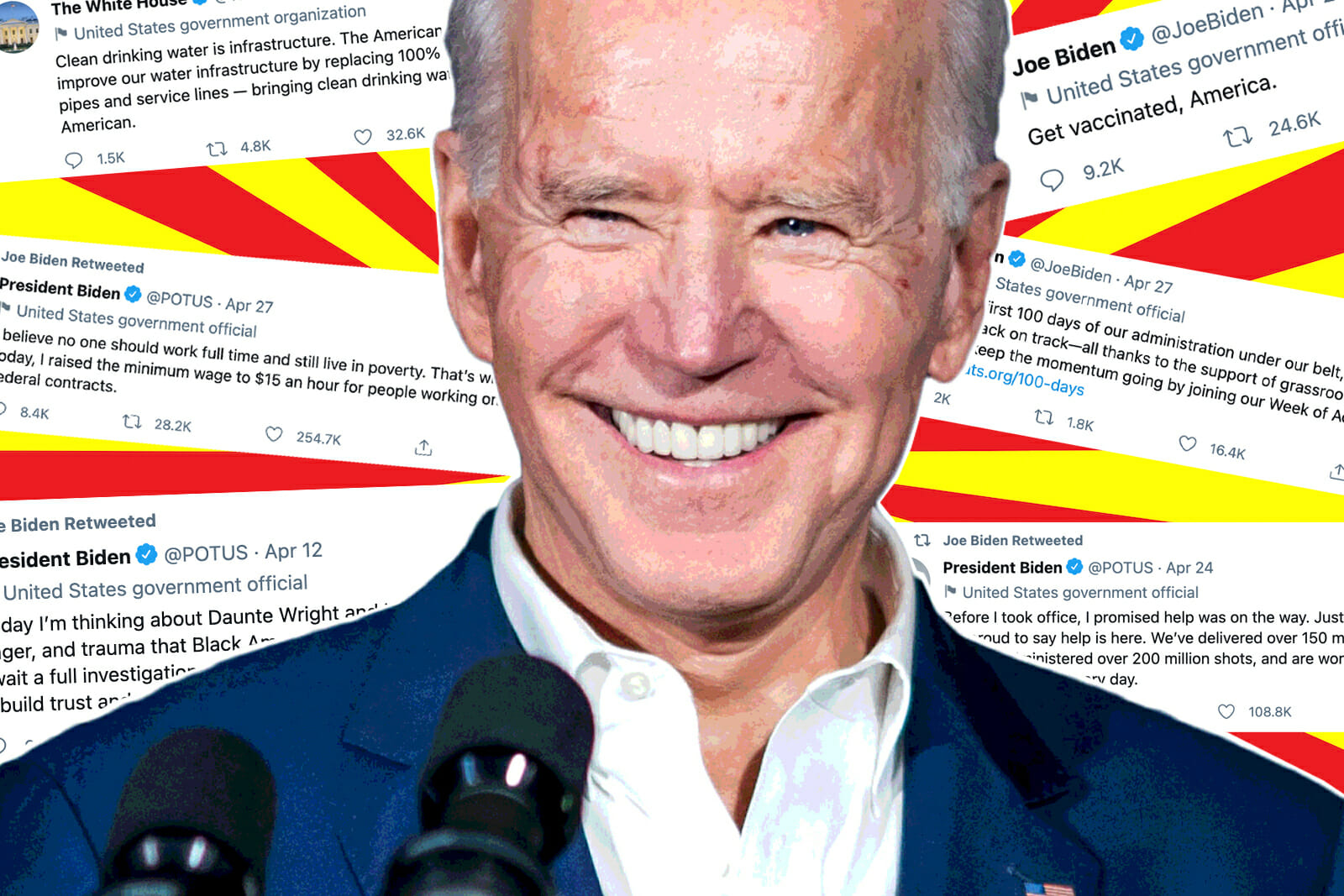
Tech
Twitter: The New Kingmaker?
It has been 100 days since the new administration entered the White House. Joe Biden was sworn in on January 20 following a divisive election. Probably not helping a smooth transition from the Trump to Biden White House, Twitter made the unprecedented decision to delete all followers of the official presidential handle, @POTUS – along with other institutional accounts, including @WhiteHouse, @VP (Vice President), @FLOTUS (First Lady), and @PressSec.
Four years ago, at the end of President Obama’s term, the official handles were transferred to the incoming Trump administration, leaving Donald Trump with all 13 million of his predecessor’s followers to reach – and upon which to build. Some have referred to Twitter and this process, describing the corporation as the new “kingmaker.” Indeed, this transition of governmental accounts could be likened to a coronation—passing the digital crown and scepter from one ruler to the next in a ceremonial, live moment taking place in parallel to the actual inauguration.
An Outcry from Both Sides
There was an outcry of displeasure from both sides with questions arising about whether Twitter exercised too much power by eradicating over 80 million followers between the accounts – especially as this had not been the case in 2017. Barack Obama, who began his presidency in 2009, was the first POTUS to use social media. After all, Twitter was only founded a mere three years before Obama’s victory with the first-ever Tweet sent on March 21, 2006, by CEO and co-founder Jack Dorsey. Global popularity quickly grew during Obama’s election campaign just two years later, when volumes had increased to over 100 million Tweets per quarter.
So, was the deleting of official handles’ followers a political move by Twitter, and why was this decision made? Moreover, is it fair? University of Amsterdam Law and Digital Technology Professor Dr. Natali Helberger writes in her paper, “The Political Power of Platforms,” that “the source of the political power of platforms is their ability to wield opinion power, whether it is that of their users or politicians, or their ability to influence public discourse for their own purposes. Without adequate safeguards, all commitments to neutrality, fairness, and non-manipulation are meaningless.”
The former head of product at Twitter, Jason Goldman, who later became chief digital officer for the Obama administration, didn’t seem to agree with the “fairness” of the decision, commenting in the Wall Street Journal that “The followers who are part of that account are part of the value of building up that institutional asset.” He continued, “Just like whitehouse.gov — the website — is another asset that remains from administration to administration.”
Twitter’s Response, or Lack Thereof
Concrete reasons behind this action have never been clarified by Twitter. It could be argued that there is undoubtedly a link with the decision to permanently suspend @realDonaldTrump for being “in violation of the Glorification of Violence Policy” when communicating with his 88.7 million followers. There were also insinuations that the decision was made due to concerns around certain Trump supporters who took part in the storming of the Capitol on January 6, 2021.
Twitter stayed mute, aside from giving the factual statement that, “These institutional accounts will not automatically retain the followers from the prior administration,” with details of notifications sent to followers and plans for tweets to be archived at @POTUS45.
The Left and the Right Agreeing?
As Twitter is generally perceived as a more politically left-leaning corporation, supporters of President Trump and those sitting more to the right of the political divide criticized the company for taking a partisan position and exerting its power to influence political opinion.
That being said, the incoming Biden team also pushed back against the decision. In a statement to the press, Cameron French, the Biden-Harris Transition spokesperson, said: “Especially in times of crisis, the American people deserve access to information in a variety of forms including social media.”
French continued: “Twitter’s reluctance to transfer millions of followers from the Trump administration to the Biden administration unnecessarily politicizes what otherwise should be a routine transfer of communication from one administration to the next.”
With issues around the regulation of social media platforms, both on a national and global scale, these corporations are – within reason – free to make their own policies. In the same way that a more traditional broadcast media company can disseminate information with a blatant political bias, with the knowledge that they are influencing opinion.
Cutting Out the Middleman
Politicians treat Twitter like official stationery – an “institutional asset,” as referred to by Jason Goldman – on which branded memos are sent across the globe. They have long thought of Twitter as a free and open soapbox. A platform to shout their message. Cutting out the middlemen of traditional print and broadcast media, where comments and statements can be censored, twisted, and commented on by the owners of that outlet. However, since the @POTUS controversy, leaders have become aware of Twitter’s ability to affect politicians’ “opinion power” – as Dr. Natali Helberger would call it.
A total of 100 days since President Biden’s inauguration, followers of the current institutional handles total a mere 28.8 million— just 36% of the amount before the Twitter purge. The current administration is undoubtedly reaching far fewer people.
We all know that social media platforms wield an incredible amount of power. But with the capacity to affect the opinion power of arguably the most “powerful man in the world,” does that make them the most powerful entity on Earth?


